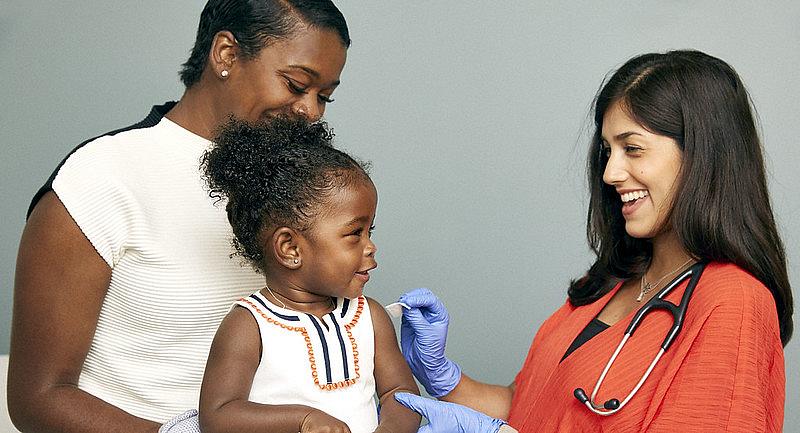Oregon is fertile soil for movement questioning vaccine safety

(Photo by SELF Magazine via Flickr/Creative Commons)
For years, Oregon has been an epicenter of a growing movement of parents who doubt the safety of vaccines and refuse childhood immunizations for their children. That movement has become more worthy of scrutiny as the nation awaits a vaccine as the endgame to the global coronavirus pandemic.
Oregon ranks low for vaccinations. A 2018 study by the Centers for Disease Control and Prevention found that Oregon had the highest rate of kindergartners with a nonmedical reason for getting an exemption from one or more vaccines. In California, less than 0.1% of kindergarten students had such an exemption; in Oregon, 7.5% did.
Another recent study found Oregon ranked in the bottom third of U.S. states for children who had received their measles, mumps and rubella immunizations (or MMR, as it’s commonly known).
One of the nation’s leading anti-vaccine pediatricians, Dr. Paul Thomas, runs a medical clinic just outside Portland. Thomas says his Beaverton clinic has more than 15,000 patients. He oversees eight doctors and nurse practitioners, who all share his philosophy. His anti-vaccine bible, “The Vaccine-Friendly Plan,” has sold 40,000 copies in three years, he says.
In Oregon, Thomas’ belief can no longer be described as a fringe movement.
For years, Oregon lawmakers — led by the late Rep. Mitch Greenlick — tried to close a loophole that allowed parents to cite “philosophical beliefs” as a reason to exempt their children from vaccination requirements. Thanks in part to Thomas’s organizing, more than 100 outraged mothers who opposed that legislation crowded a Salem committee room, the overflow room and the hallway. The bill ending the exemption was traded away by Democrats in exchange for a climate bill — which failed anyway.
In 2019, I examined Thomas with a critical profile. He told Willamette Week he signed the discharge papers for a 6-year-old child who contacted tetanus and spent eight weeks in the hospital. (The child left the hospital without receiving the vaccine still.) That case became a national story last year after the CDC released a report on the case.
Since then, the backlash to vaccines has only grown.
The “vaccine choice” movement is now all but a plank of the Oregon Republican Party. Its forces were on display at Capitol protests — first of caps on carbon emissions, then of executive orders issued by the governor to close schools and businesses.
The leader of the ReOpen Oregon rally that opposed the state’s stay-at-home order during the pandemic also has supported the anti-vaccine movement (as well as the Republican walkout of the state legislature earlier this year over climate legislation). Anti-vaxx messages have been part of the rallies against climate legislation, organized by a mainline anti-climate change advocacy group Timber Unity, where extremists, including supporters of the conspiracy group QAnon, have mixed with mainline Republicans.
The anti-vaccination movements and COVID-19 conspiracy theories are a threat to public health across the nation, and particularly Oregon, which has proven to be fertile soil for these beliefs, as my prior reporting has shown. If and when a COVID-19 vaccination is available, nearly half of Americans say they won’t trust it. That threatens to undermine any effort to safely reopen the country.
For the 2020 National Fellowship, I’ll examine who is leading the efforts to sow distrust of vaccinations, explore the impact of vaccine resistance on Oregon schools, and unpack how the children most affected by such movements are those who have the least access to other health care: poor children and children of color. I would speak with parents whose children are not being immunized, as well as parents whose children are at the greatest risk from the choices other families make — and the state allows.
The anti-vaccination movement is often treated as a purely political phenomenon. In fact, it is a burgeoning public health crisis. Our newspaper aims to show why.
